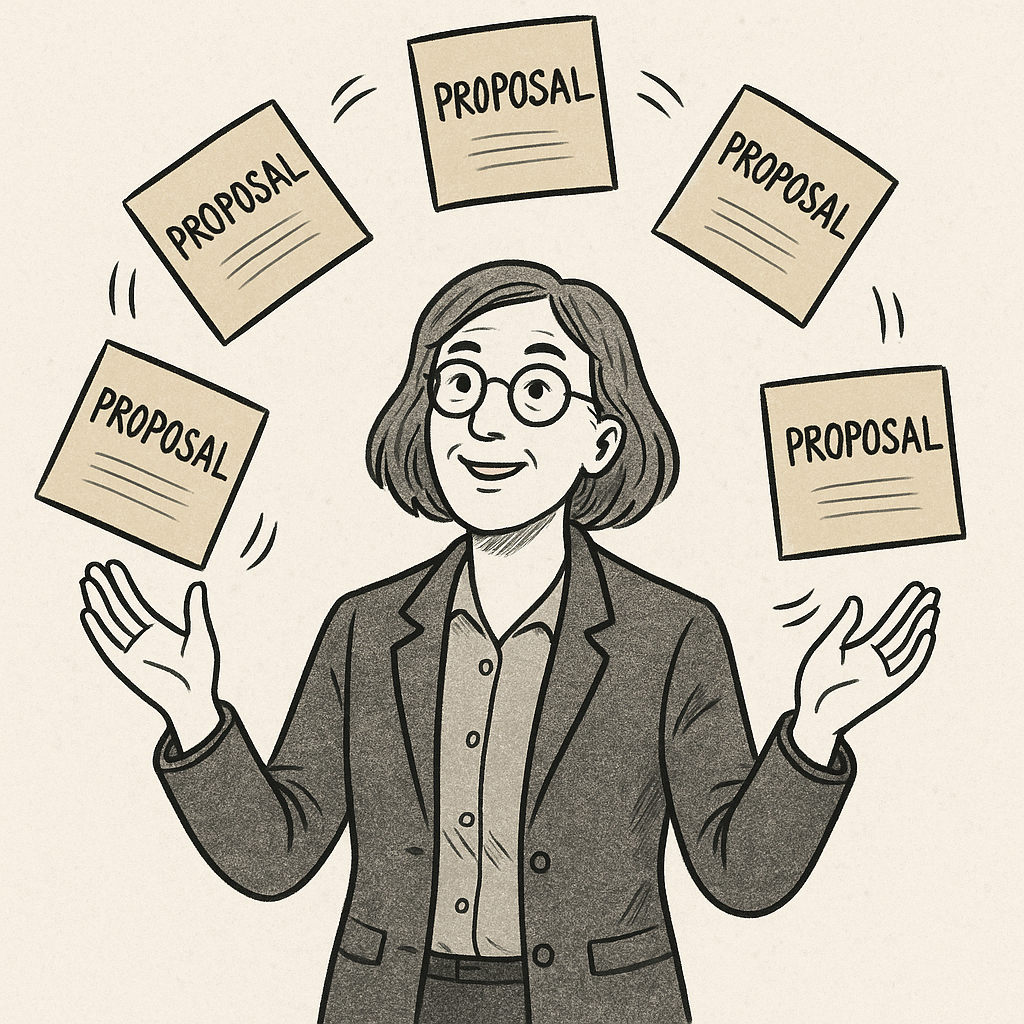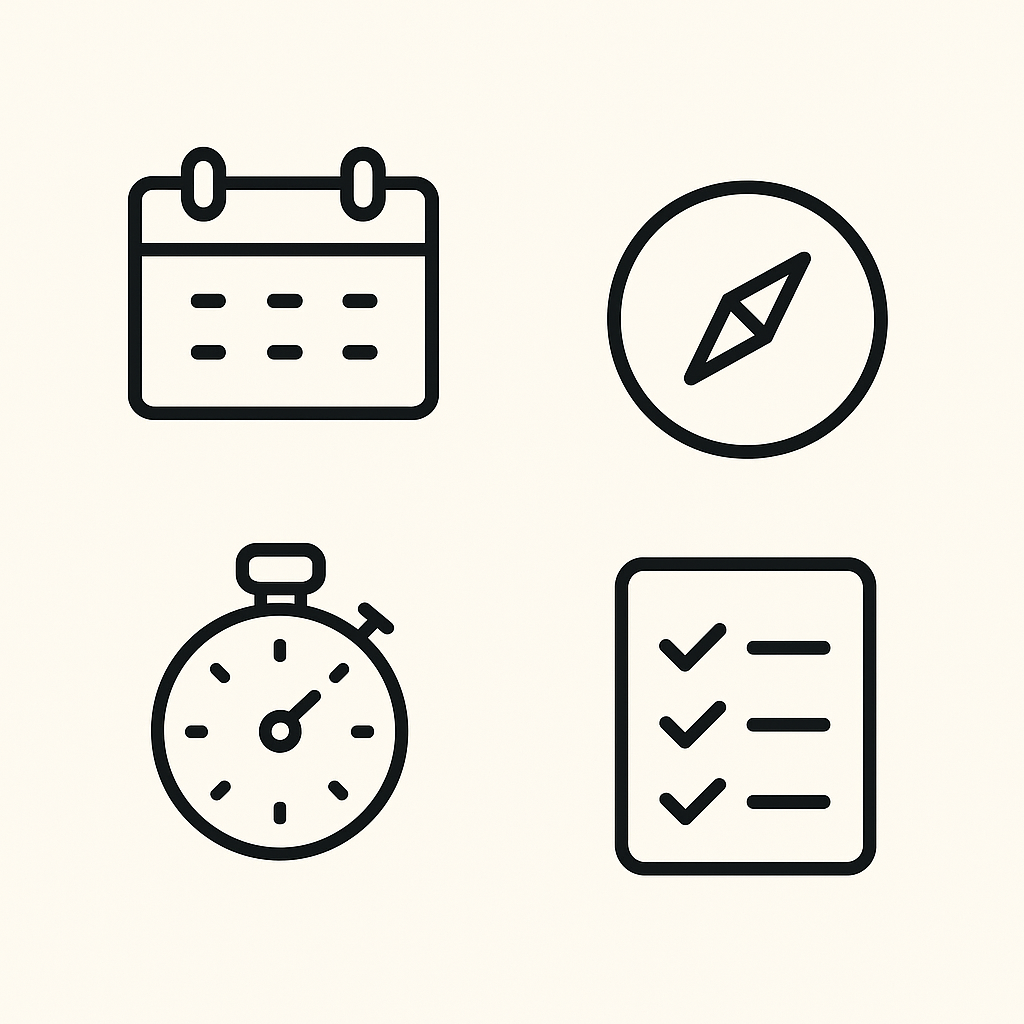
Juggling various proposals
If there’s one word that defined much of my academic work last year and this year, it’s proposals. As my main large research projects on bridge load testing are ending this year, I’ve been shifting my focus toward what’s next. With that comes the not-so-small task of applying for funding: a process that has been intense, frustrating, and enlightening all at the same time. I am writing this post as I received the outcome of yet another rejection: a proposal graded 4.8/5 that still did not make the cut to get granted.
Over the past two years, writing proposals is what I’ve spent most of my time on. Whether it’s for national funding, international programs, or strategic university initiatives, I’ve been exploring various funding streams. I’ve led proposals, contributed to others, and try to be strategic about when to lead and when to collaborate.
The sheer number of proposal opportunities, and the different requirements, structures, and expectations for each, can quickly become overwhelming. But through trial and error, and drawing from the checklists and systems I’ve built over time, I’ve found a few practices that help keep things manageable while you are trying to push forward a large number of proposals at the same time. Here are some of my insights:
- Use proposal checklists for recurring tasks: For standard parts of a proposal (obtaining participation forms of collaborators, making better figures, and checking off the input of all consortium partners on the budget sheet) a checklist can save you hours. I’ve developed templates over the years that I use for the same types of calls, and adjust for different calls. They make the organization tasks a bit lighter.
- Get the help of your university’s research support offices: Proposal writing doesn’t have to be a solo sport. Your institution likely has an office dedicated to grant applications, and their expertise can be invaluable. From providing boilerplate text to navigating online submission systems and providing advice on more obscure call requirements, their experience can take your proposal to the next level.
- Use consortium meetings wisely: When you’re collaborating on a larger proposal, consortium meetings can easily spiral into vague discussions. Use these meetings to take clear decisions. Flesh out the overall structure together. When does everyone need to submit their input? Who will handle the final proofreading? Everyone should leave the meeting knowing exactly what they need to deliver and by when.
- Block substantial chunks of time in your calendar: Proposals aren’t the kind of writing you can squeeze into a 30-minute slot between meetings. I find I need several (at least two continuous) uninterrupted hours to make real progress, especially for the parts that require outlining and thinking, like the excellence or impact section. I’ve learned to treat proposal writing as deep work and protect that time accordingly.
- Choose your roles strategically: You don’t have to lead every consortium. I try to be selective and honest with myself: Where is my contribution most valuable? Where do I bring unique expertise? Sometimes, it makes more sense to be a strong co-applicant and let someone else take the lead.
These practices didn’t all fall into place overnight. There were moments of consortium-collapse stress, very early morning writing sessions, and more resubmissions than I want to count. But over time, juggling proposals has become more about systems and decisions than about chaos.
Managing multiple proposals alongside your ongoing research and teaching is a balancing act; and one that’s more about focus and strategic choices. As with all aspects of academia, saying yes to one thing often means saying no to another. Smart collaboration has allowed me to keep contributing to exciting ideas without overloading my calendar.
If you’re just stepping into the world of proposal writing, start with one. Learn the structure, build your personal checklist, and get familiar with the expectations of the funding agency. From there, grow slowly and don’t hesitate to ask for help. Proposal writing is a skill, but also a process of learning how to navigate the system, collaborate well, balance input with executive decisions, and maintain your sanity in the face of moving deadlines.
It’s still a work in progress for me too; and it is still hard to predict for me which will be a winning proposal and where I will spin my tires in place just on trying to form a solid consortium.
How do you work on various proposals at the same time?



